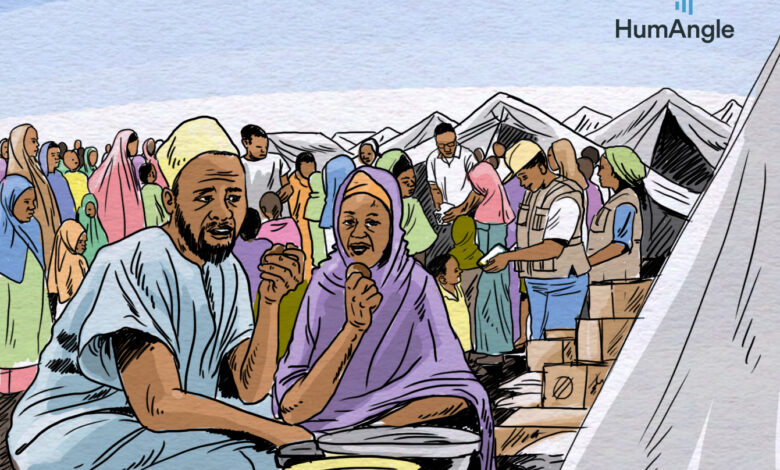Aid Actors In Northeast Nigeria Facing Triple Impact Of Security Risks, Restrictions, Relocations – Report
Security risks and restrictions on movements have made humanitarian operations in Borno State, Northeast Nigeria, dangerous and difficult.

Humanitarian actors cannot reach an estimated 1.1 million people in inaccessible areas of Borno State, the epicenter of the 12-year-old conflict in Northeast Nigeria, as aid operations mostly focused on the state capital, Maiduguri, and garrison towns.
“As displaced, returning and host communities are all experiencing critical needs across all sectors, the inaccessible areas in Northern Borno, where food security levels are likely to have reached famine levels, are of highest concern,” a recent Protection Analysis by the Global Protection Cluster pointed out.
The report highlighted the situation surrounding the relocation of displaced persons after officials closed six camps in Maiduguri including the Mocgolis and NYSC camps in May 2021; Farm Centre and Bakassi camps in Sept. and Nov. 2021, as well as Stadium and Teachers Village camps in Jan. 2022.
An estimated 22,872 households comprising 103,568 displaced persons were reportedly either returned to their areas of origin or relocated to locations closer to their ancestral homes or moved elsewhere into camp or non-camp settings.
The protection report also disclosed that 11,590 households of 60,074 individuals suffered secondary or multiple displacements in locations that were not conducive for return or relocation with limited access to services and livelihood opportunities that make their stay there unsustainable.
“Relocation and return areas have also been unsafe and inaccessible to humanitarian actors due to insecurity and government-imposed restrictions of independent movements,” the report stated.
It added that attacks by insurgents on the relocation and return sites –among them in Damasak, Gajiram, Kukawa, and Marte – have caused displaced persons to flee, with some returning to the locations they were initially moved away from.
Despite the security conditions and protests from the humanitarian community, relocations and returns are continuing with Dalori 1 and Dalori 2 camps, Gubio Road and Muna El-Badawee camps have reportedly received closure notification from authorities.
In March, HumAngle reported how hunger and diminishing access to means of sustenance at Gubio camp were forcing many IDPs in Northeast Nigeria to adopt extreme measures like pulling down their roofs and breaking concrete to extract steel to sell in exchange for cash.
The humanitarian situation in the state, particularly for returnees, has been aggravated by the Dec. 2021 ban on humanitarian food distributions across areas where authorities had resettled displaced persons.
Although the aim was to make relocated communities self-sufficient and not dependent on aid, the report stated that the relocation does not provide the conditions for income generation and food security.
Borno State hosts 4.2 million people out of the projected 8.4 million people in need of humanitarian assistance and protection in 2022.
The state also accounts for 1.6 million Internally Displaced Persons out of the 2.2 million persons displaced across three states affected by the conflict.
Support Our Journalism
There are millions of ordinary people affected by conflict in Africa whose stories are missing in the mainstream media. HumAngle is determined to tell those challenging and under-reported stories, hoping that the people impacted by these conflicts will find the safety and security they deserve.
To ensure that we continue to provide public service coverage, we have a small favour to ask you. We want you to be part of our journalistic endeavour by contributing a token to us.
Your donation will further promote a robust, free, and independent media.
Donate HereStay Closer To The Stories That Matter




